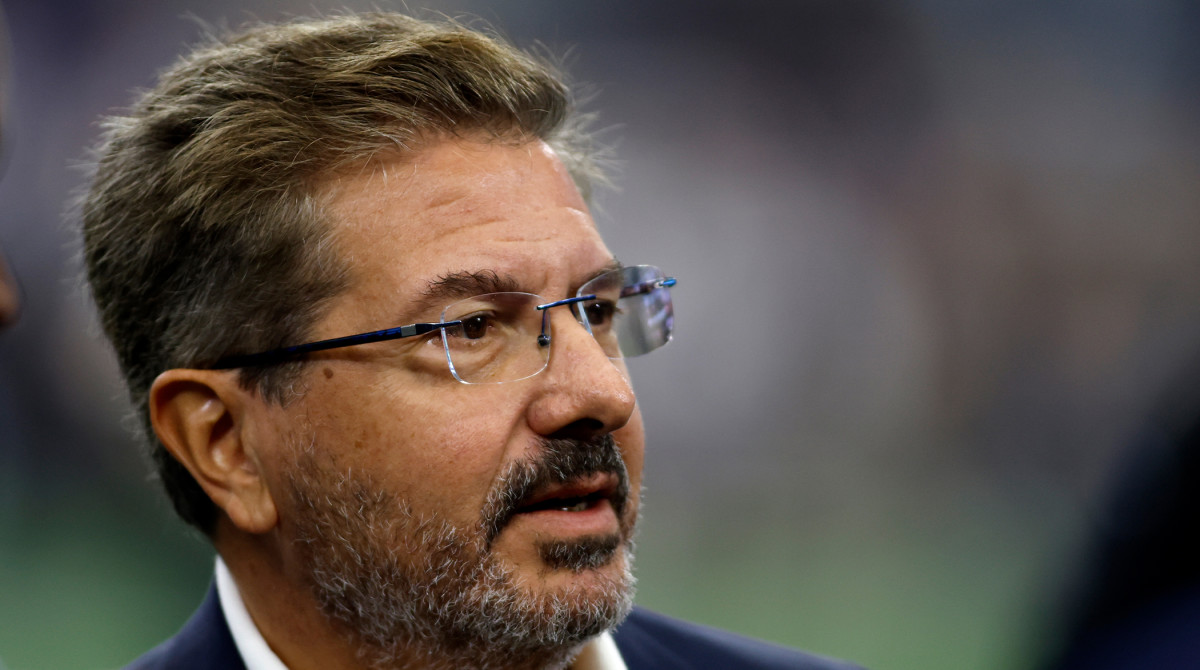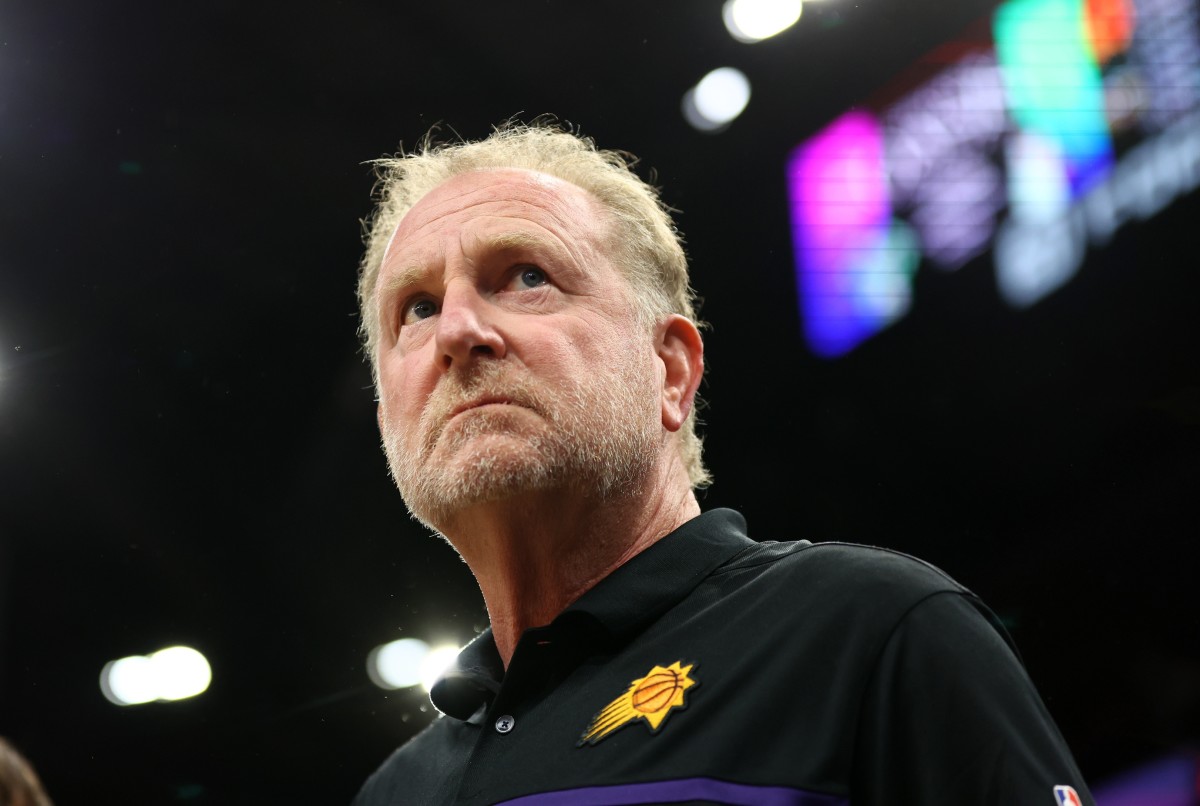Why Ousting Dan Snyder Is Complicated
In what may come as disappointing news to many readers, I’m not optimistic that Daniel Snyder’s continuing ownership of the Commanders is in danger. However, do not despair, Washington fans and Snyder enemies (there are many): There is a potential way out.
Let’s examine.
Jewel franchise no more
I grew up, as Snyder did, a die-hard fan of the Washington franchise. I was a contemporary and a relative neighbor (a few miles away) of Snyder, although I did not know him. We crossed paths at NFL owners meetings a few times, but I did not have the status to gain his attention.

When we grew up, the team was a jewel franchise of the NFL and a galvanizing force in a polarized city. Team owner Jack Kent Cooke, despite his idiosyncrasies, was royalty in the region.
Now Washington is known as the Commanders by fans and by local and national politicians. At a time when other teams are securing massive stadium subsidies (Titans ownership just struck a deal for a $2.2 billion domed stadium, more below), the franchise is striking out with three troughs of public money to potentially leverage—D.C., Maryland and Virginia, due, it seems, to animus toward Snyder.
Not a week goes by where I am not asked this question: “Andrew, why can’t the NFL get rid of Dan Snyder?”
Well, it’s complicated.
There will be lawyers
Despite the appearance of owners “voting out” a fellow owner in the NBA and NFL, it hasn’t actually happened. Donald Sterling and Jerry Richardson both sold their franchises (the Clippers and Panthers, respectively) instead of—or perhaps before—any vote to remove them. Now Robert Sarver is in the process of doing the same with both the Suns and WNBA’s Mercury.
Removal of an owner is an extraordinary step—both by the commissioner and fellow owners—that has not, to date, happened. And despite Colts owner Jim Irsay’s comment that Snyder should be ousted, I don’t see it happening.
Snyder’s identity seems wrapped up in being an NFL owner, although that is certainly not unique to him. He will hold on to the team for dear life. And should an attempt to wrestle the team away be made, one of the more litigious people we have seen in sports would unleash an armada of lawyers. The league would be tied up in motions, depositions and perhaps eventually a courtroom for not weeks, not months, but years. No one wants that, including Irsay.
So then what?
The Sarver campaign
As mentioned above, Sarver is now selling the Suns and Mercury. While the NBA never initiated a process to remove Sarver, it is naive to think his decision to sell happened organically. After the NBA’s (public) report of Sarver’s reign of toxicity and the announcement of a one-year suspension for Sarver, we saw, in a matter of days:
- Suns vice chairman Jahm Najafi saying he would not continue in that role if Sarver is still with the team after the one-year suspension.
- PayPal saying it would not renew its jersey sponsorship if Sarver is still with the team after the one-year suspension.
- A tweet from LeBron James saying, in part: “Our league definitely got this wrong. I don’t need to explain why.”
- A tweet from Chris Paul (who is both on Sarver’s team and a former president of the National Basketball Players Association) saying, in part: “I am of the view that the sanctions fell short in truly addressing what we can all agree was atrocious behavior. My heart goes out to all of the people that were affected.”
Beyond the above, I would expect there were owner conversations with Sarver, as well as with senior NBA leadership, suggesting it would be prudent to sell the team. And he is in the process of doing just that.
Would NFL stakeholders “Sarver” Snyder?

Interestingly, Sarver and Snyder received the exact same punishment—from different leagues and commissioners—for what appears to be very similar behavior. Sarver was accused of frequently using an anti-Black slur in the presence of and in reference to employees and players, according to an ESPN report. He was also accused of saying other remarks that made Black employees uncomfortable and of making misogynistic and sexual comments about women in the workplace, according to the report. Snyder has been accused of multiple accusations of workplace sexual harassment and assault.
Unlike Sarver’s situation, where a public report from Wachtell, Lipton, Rosen & Katz is online, a report on Snyder’s behavior never saw the light of day, thanks to the NFL’s requiring only an oral report. However, the hits keep coming for Snyder: There are ongoing investigations by Mary Jo White and the House Committee on Oversight and Reform.
Assuming NFL owners don’t want to go down the path of a removal vote—and that is a fair assumption—could the NFL “Sarver” him? Well, there would need to be a lot more on the record than Irsay’s comments.
We have not heard from other NFL owners, and would they echo Irsay? We have not heard from any current team employees in leadership roles, and would they contradict Snyder’s constant claims of a much-improved workplace? We have not heard from team or league sponsors, and would any sponsor condemn Snyder’s behavior? A public rebuke by a major sponsor would be a big body blow. The Commanders did lose Anheuser-Busch, which declined to renew its association with the team. We haven’t heard from a well-known player, whether on the Commanders or not, and would a player of stature speak out against Snyder as James and Paul did against Sarver? These are the types of stakeholder pressure, combined with owner and commissioner sidebars with Snyder, that could back Snyder into a corner and force him to sell.
On to the next, or not?
Snyder knows, as you and I do, that there is always a new NFL story/scandal/drama to divert attention, and we will move away from Snyder at some point (some already have). The hits will subside, at least for a while, but when they return, there will be other players, owners and coaches feeling heat about something else.
The NFL is not going to have a vote to remove him; there would be too much litigation and obfuscation. Snyder will have to be “Sarvered.”
Could this happen? Yes.
Will it? Certainly not without more stakeholders with stature denouncing the ownership.
Other thoughts on the business of the NFL
Titans deal: There was a plan to refurbish and remodel the Titans’ existing facility, Nissan Stadium, for a (relatively) modest price. That plan was scrapped in favor of a much more aggressive one now that a deal was struck for a $2.2 billion domed stadium. The sources of funding are the following: $840 million from a combination of Titans ownership, the NFL loan program and personal seat licenses; a $500 million one-time contribution from the Tennessee legislature; and $760 million from revenue bonds issued to be repaid through a 1% hotel tax and stadium sales taxes. The $1.26 billion public funding eclipses the $850 million from the state of New York to help the Bills and the $750 million from the state of Nevada to help the Raiders.
To be clear, I do not minimize the contribution of several hundred million from the Strunk family (the Titans’ owners). However, that represents about 32% of the funding. Final approval is pending, but it appears the Strunks just made one of the best deals in the history of the business of sports.
Loyal readers know my saying regarding NFL owners and stadium financing: socialize cost, privatize profit.
Black Friday forever: The inexorable creep of NFL programming continues, with the NFL adding a Black Friday game starting in 2023 to be streamed on Amazon Prime Video. What a brilliant, even diabolical, move for the tech giant. It takes roughly 25 million shoppers away from the busiest shopping day of the year and places them squarely on the Amazon website for four hours.
And, believe me, this is not a one-off. This will become a staple of NFL–Prime Video programming far beyond their current 11-year NFL contract for what we thought was just Thursday nights. I am confident that next month’s Black Friday will be the last one in our lifetimes without an NFL game on Amazon.
More NFL Coverage:
